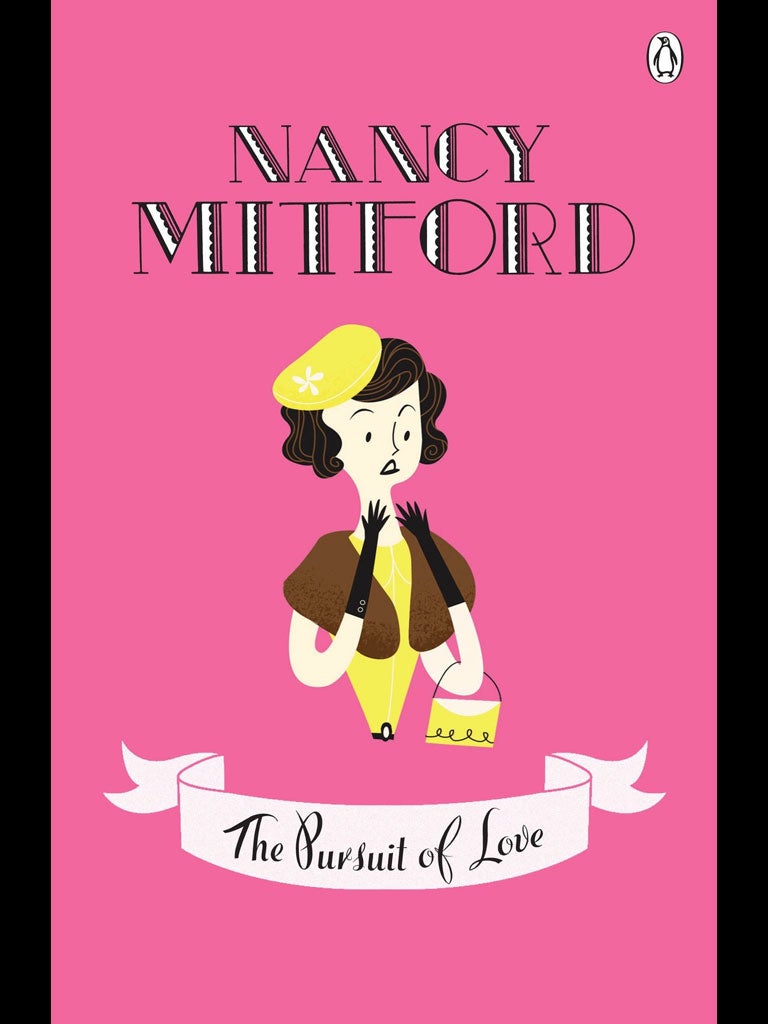We, like, should really stop saying ‘like’
WWNMS? ‘What Would Nancy Mitford Say,’ wonders Eleanor Doughty, quite properly

I'm going through a phase of asking 'what would Nancy Mitford say?’ Last night, my upstairs neighbours were playing their music loudly – instead of stomping up there with a proverbial baseball bat, I wrote them an gracefully worded note that stated in no uncertain but polite terms that, although their love for Joss Stone is shared (it is not) throughout the building, pretty please would they be so kind as to TURN IT DOWN.
And thankfully, they did. This week, I am asking what Nancy would say about modern language.
I dare you to get through a day without unnecessarily punctuating a sentence with the word 'like'. If you manage it – honestly – I’ll buy you a pint. But as I know that will prove almost impossible, however articulate one may be, I'll be keeping my five-pound note.
My flatmate gave up swearing for Lent. With the punishment being a tea-ban and her average of 10 cups a day, both ban and ruling were short-lived. For many people, expletives pepper daily speech. And that’s fine – I am careful not to ‘fail to use the vocabulary’ I was born with too regularly, and specifically in the presence of my parents. I can remember very clearly the one and only time I’ve ever heard my mother said the ‘f word’ – similarly, my first swear was accidental, and caused by dropping a winegum down the loo aged eleven. I’m such a goody two shoes.
I was writing this in a park on a sunny day. Because anything above 16 degrees qualifies as Mediterranean, most of the camped-out-for-the-afternooners were half-naked, in the traditionally British way. Listening to the intricacies of other people’s speech – especially when you’re putting off writing something haphazardly coherent – is gripping. I never said my weekends were fun.
I made a tally of how many times the girls next to me said the word ‘like’ in a short specified amount of time. At 20, I sat up. I know I am guilty of it, and sitting there wishing the literary ground would swallow me up, I wondered how Nancy would feel. Mitford, the authoress of ‘U and Non-U’, the 1956 essay that defined those words used by the upper and non-upper classes, had a great many views on a great many matters. My special favourites from this list include ‘loo’ versus ‘toilet’, ‘napkin’ versus ‘serviette’ and the varied ways in which one can address the day’s meals. You can qualify from this that I would love for it to be socially acceptable to regularly ask ‘How d’you do?’ It seems most elegant.
I am unsure how Ms Mitford would have reacted to the over-popularised use of ‘like’. Ezra Pound would have frowned and quoted something concise about the economy of language. The overactive use of ‘like’ supposedly covers the gap where ‘um’ used to go, but in practice it doesn’t seem to. Replacing ‘like’, with ‘um’ in: ‘and she was like’, doesn’t add up.
Modern language is puzzling. A couple of years ago, my friends and I suffixed sentences – observationally taking the mickey out of some ‘lads’ we knew – with ‘mate’, which traversed and became ‘babe’ a year later. As someone that finds the rearrangement of words an intellectually delectable pursuit and an occupational hazard, I thoroughly enjoy the dissection of other people’s language. It’s aural people watching.
Social media has made us linguistically lazy. It might stem from the cult of Microsoft Messenger – RIP, 1999-2013 – the platform that provided my generation with virtual scenarios where it was acceptable to nudge people irritatingly until they responded, and ask ‘do you fancy me?’ before claiming it was in fact your ‘friend’. While we should have been out climbing trees, we were on MSN being closeted from the dangers of the world. I blame this nonsensically addictive form of social media for the way ‘like’ has come into the public vocabulary. Indirectly, our laziness came from these hours of touch-typing crash courses.
While I am not able to reach any conclusions about Nancy’s views on it all, I doubt she would have considered it very ‘U’. And as for ‘like’, I sense her frowning disapproval in a way comparable to my late grandfather’s if I ever venture near the processed meat in Waitrose. So Nancy, on behalf of a society seemingly unsure of what they’re going to say, I beg your pardon.
Eleanor Doughty is a second-year student at Queen Mary, University of London. Follow her on Twitter here. She probably won't follow you back.
Join our commenting forum
Join thought-provoking conversations, follow other Independent readers and see their replies
Comments
Bookmark popover
Removed from bookmarks